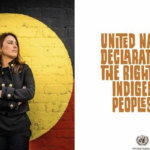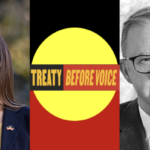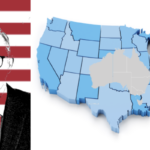Albanese Has Thrown Open the Doors to Unquestioned US Military Presence and Control

Hawkish defence minister Richard Marles, in the second last sitting week of federal parliament this year, tabled a bill to amend defence trade control law, which seeks to streamline the financial exchange of defence and strategic goods between the AUKUS powers: Australia, the US and the UK.
This proposed development has been criticised locally, as even as the other western powers are expected to reflect these laws, this nation’s much smaller economy cowers in comparison, which is likely to ensure that most of the free flow of technologies and goods goes in the other direction.
While these changes are further set to hardwire our nation into the war economies of its closest allies, the US continues its incremental inroads into local soils, in terms of its unimpeded access to dozens of local military bases and its increasing interoperability with the Australian military.
Dating back to the 1960s imposition of the Pine Gap and North West Point installations, US encroachments into local terrain began to rise a decade ago when PMs Gillard and Abbott both greenlighted the US force posture agreements or multiple local US military deployments.
And when Sydney Criminal Lawyers put these US intrusions upon Australian sovereignty, with the recent addition of Japanese troops joining in local US force posture initiatives, to Australians for War Powers Reform (AWPR) spokesperson Dr Alison Broinowski, she assured the situation is much worse.
“Mindless, servile foreign and defence policies”
“What you describe is bad enough,” answered Dr Broinowski, “but it is made worse by the fact that Marles has been talking up sovereignty for much of this year, while progressively surrendering it to the US, if not also to the UK.”
“The US now has Australian-paid officials working inside Australian government agencies,” the AWPR spokesperson continued. “This means that any Australian wanting to express concern about any US activity or policy is circumscribed, and their advice to ministers is neither free nor fearless.”
The former diplomat explained that Washington has been given strategic control over local mineral exports, so that while Canberra has been thawing trade relations with Beijing, US-imposed resource trading restrictions have directly penalised China, as it prevents such dealings with the East Asian giant.
Broinowski adds that the secrecy that has always shrouded “Pine Gap now extends to American operations” in the dozens of “agreed facilities and areas” that the US has unbridled access to in the north and west of the country, as well as to the finer details of the AUKUS pact.
“The threat is that if it is breached,” she further warns, “Australia will be cut off from access to US intelligence.”
The questionable value of US intelligence
But Broinowski questions the worth of US intelligence, as it was the source of the 1964 Gulf of Tonkin false flag incident, 1990’s “false reports of de-incubated babies in Kuwait”, as well as the “still-suppressed” 9/11 story, the WMD lies in Iraq and this year’s “non-spying Chinese gas balloon”.
“Did the US warn us about Hamas’ plans for 7 October 2023, which Israel knew for nearly a year?” she further questioned.
“If Australia knew, then as always we said and did nothing, except for finding more things to sign up and pay for from the US military industry, and more US allies to become clients of.”
And despite the assertions of the defence minister, Broinowski outlines that the US can take over any of the agreed facilities in Australia, and deck them out with whatever types of weaponry for whatever enemy it prefers, which includes nuclear devices due to its policy of warhead ambiguity.
Broinowski warns that Australia, Japan and South Korea are being primed for a new version of the defunct 20th century SEATO (Southeast Asia Treaty Organisation) that will act as a “little NATO” patrolling the Indo Pacific on behalf of the larger northern hemisphere military alliance.
“What PNG and other Pacific Island nations do to play one side off against the other sets Australia an example of how we should protect our sovereignty and our own national interests,” she asserted.
International law versus rules-based order
The last year has been marked by ever-increasing incidents involving our government relinquishing power to Washington, which is a project that has hit overdrive since the PM jetted over to San Diego in March, ensuring a wide berth as he dropped the AUKUS details upon the Australian constituency.
However, none of this unprecedented race to join the White House in warring on China at some point in the near future prepared the local public for our nation’s political leadership to step up and support the wholesale massacre and ethnic cleansing of over 2 million Palestinians in Gaza.
“The disregard for international law that has always characterised the US and Israel ought to be enough for Australia to withdraw its weapons from Israel and demand an immediate ceasefire,” Broinowski said, as she echoed the sentiment of millions of Australians watching on in horror.
“If we do not join the majority of the world’s countries in condemning both the Hamas assault and the disproportionate Israeli response, we are potentially complicit in war crimes,” the peace advocate confirmed, as she highlighted that most of the globe doesn’t support Israeli war crimes.
The US backing of Israel, which sees all western allied leadership lining up beside Biden in this stance, has shown that the “international rules-based order”, that Washington and Canberra have been asserting must be imposed upon the Indo Pacific, is a system that serves to profit the west.
And since the onslaught against Gaza commenced, Global South commentators have declared the post-World War II-established “international law-based order” is about to topple over as Tel Aviv perpetrates multiple war crimes in full view, which Washington supports under its rules-based order.
According to Dr Broinowski, the real test of international law will come when Australian foreign affairs assistant minister Tim Watts soon visits Israel, followed by another such Middle Eastern sojourn on the part of foreign minister Penny Wong in January.
“Incidentally, why send an inexperienced, unknown assistant minister?” she further questioned. “What do we have ambassadors for? If a war over Taiwan is in prospect, now is the time for Australia to make it clear to the US that we are not interested in joining any coalition to fight it.”
“The scorched-earth ethnic cleansing of Gaza and the West Bank”
Despite the powers that be in this country and across the Global North attempting to criminalise pro-Palestinian protesters, which has included repeated charges of antisemitism simply for being opposed to war crime atrocities, thousands have been turning out on the streets locally and globally.
These demonstrations continue across the planet as it increasingly becomes apparent that not only are western leaders out of step with the majority of the globe, but their stance on Gaza is further opposed by most of the voters in their own constituencies.
“Ministers were not persuaded by public protests to desist from the war on terror in 2003,” Dr Broinowski recalled, and she outlined that they’re “unlikely to change their course because of more street demonstrations now”.
The AWPR spokesperson added that local “governments are not obliged to consult the public or its representatives about going to war, or indeed, about signing treaties”. And she underscored that the powers that be are well-aware that public opinion is shifting on Israeli state operations.
Australians for War Powers Reforms has been petitioning the federal government to change its approach to war powers, or the decision as to whether the nation joins a foreign theatre of war, so that it engages the entire parliament and hence, the constituency, as currently it’s up to the PM.
Officially known as the National Security Committee, the war cabinet is comprised of Anthony Albanese, Richard Marles, Penny Wong, Jim Chalmers, Chris Bowen, Mark Dreyfus, Clare O’Neil, Katy Gallagher and Pat Conroy.
Federal Labor ran in last year’s election on a platform that included holding a parliamentary war powers inquiry on whether the change should be forthcoming. However, Marles wrote to the 2022-23 inquiry recommending no reform, whilst Wong told the chamber no change would be resulting.
The final report reflected the position of these cabinet members, and as a consolation, the Albanese government came to a compromise, which involves parliament being able to debate whether the nation should be entering a war overseas after the PM has greenlighted it.
In terms of the “potential genocide that is occurring with barely a murmur of disapproval from Biden”, Broinowski considers that “the issue remains more polarised between advocates on either side” over here, as in the US, Jewish and Palestinian Americans are expressing opposition.
“Here’s another opportunity for Australia to speak up independently for what’s right and just,” the former diplomat said in conclusion, “but it’s likely that we will miss it, as we have missed so many opportunities in the past.”







